Talking points as City's final stand ends in sorrow at the Aviva
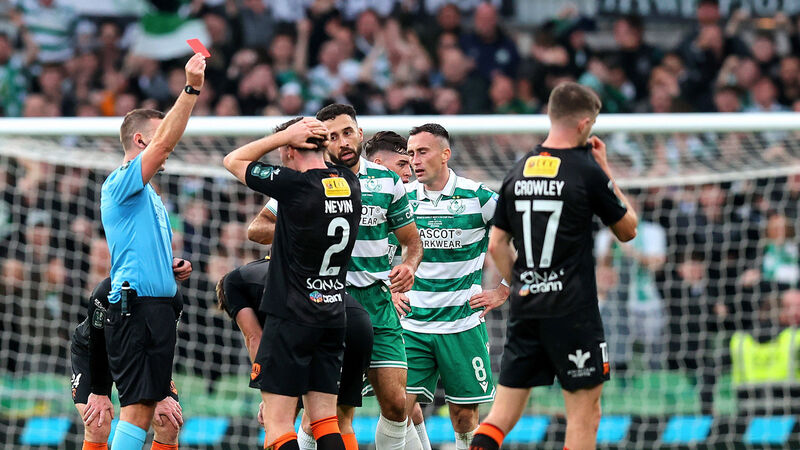
Cork City's Harry Nevin was shown a straight red card. Picture: INPHO/Tom O'Hanlon
Not the ending anyone on Leeside dared to dream. A season defined by struggle and disappointment closed in the most painful way possible – Cork City’s FAI Cup miracle extinguished in the Aviva Stadium, ultimately undone by a red card and the ruthlessness of Shamrock Rovers.
Bottom of the Premier Division, just four league wins, and written off long before arriving in Dublin, they still came believing.
But belief alone wasn’t enough once Harry Nevin’s dismissal on the stroke of half-time stripped them of oxygen against Shamrock Rovers.
In the ‘David v Goliath’ framing Fiacre Kelleher had leaned into midweek, the margins were honest for 45 minutes. City matched Rovers in structure and in discipline. The only thing they lost was a man.
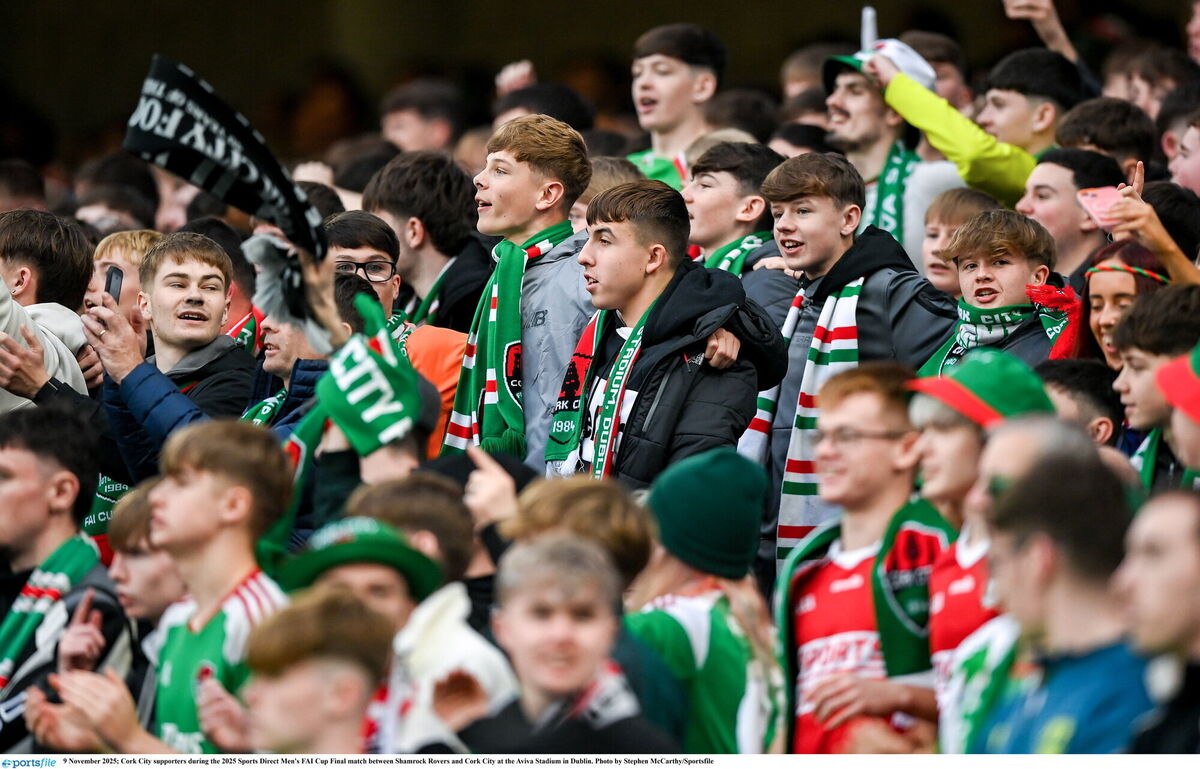
When Rory Gaffney finally broke through with 25 minutes left, City sagged and faded away, reality arriving right on cue.
A bitter close to a brutal campaign, and one that will harden rather than soften the unrest surrounding Dermot Usher’s ownership. If anything, this Cup final felt like a microcosm of 2025. Commitment, defiance, flashes of quality – but the same punishing tendency to self-sabotage in moments that mattered.
For the umpteenth time this season, Cork City are left to ponder what might have been, what could have been.
It was the story of their league season and it was the story of their final. In the Premier Division you’re punished. In the First Division you occasionally escape. And so, back they go to the second tier.
Winning on Sunday was always going to be a tall order. As disappointing as it is to fall at the final hurdle at any stage, this one will really sting given the weight it carried for City. This was their one shot at salvaging something from a season no one in Cork will want to remember.
And it was the same failings in front of 35,352 at the Aviva, as have cost them home and away throughout the league season. Lapses in concentration. A sloppy goal here, a red card there.
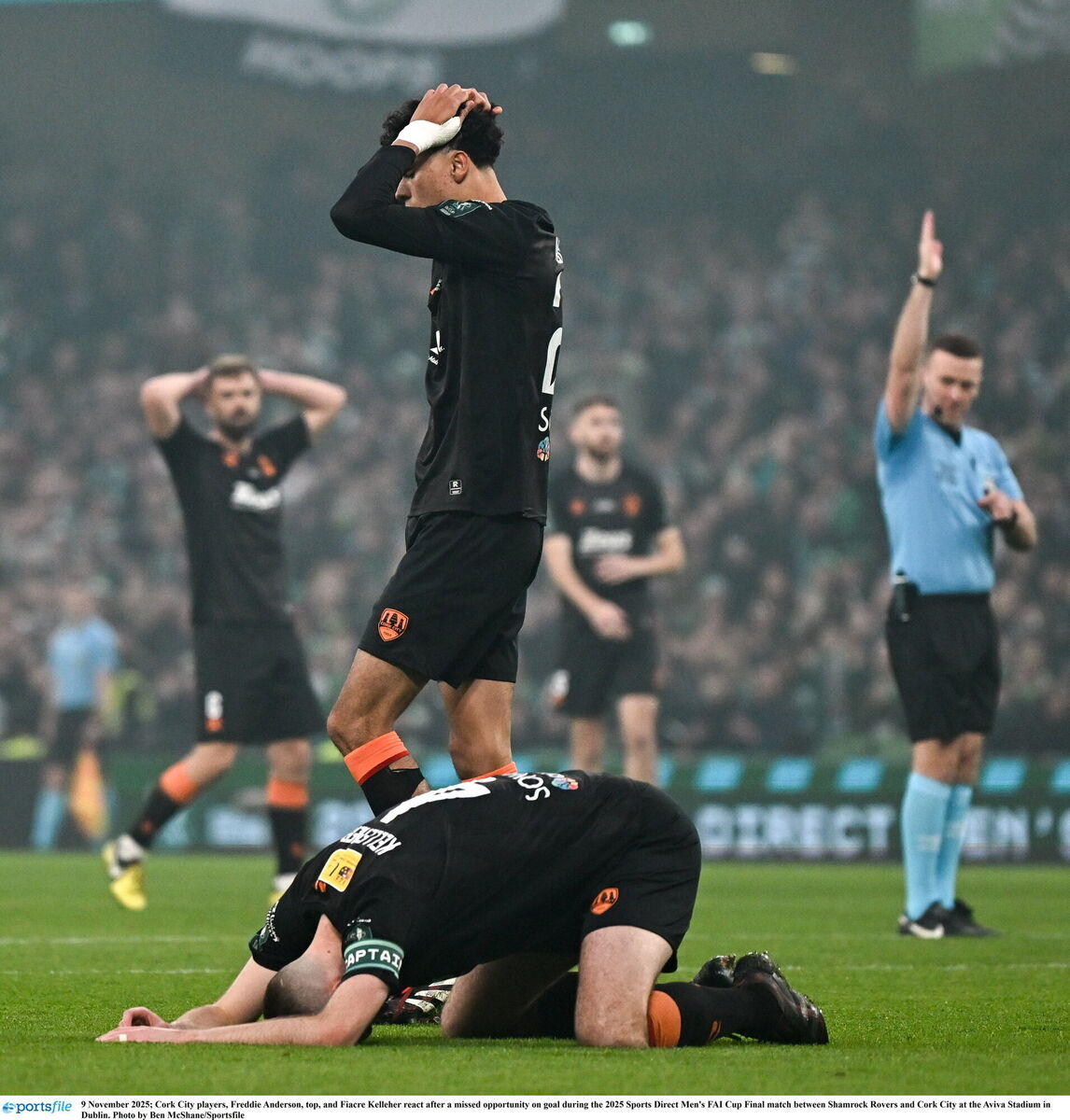
They’re back again, where they were in 2021, with the glory days of the past an age away.
It was one moment – and it killed their challenge. Up to then City had been compact, clever, and perfectly in tune with the game plan.
One mistake. One mistimed tackle. City down to 10 men. Harry Nevin walking off with his hands on his head.
Nevin had done well to link with Alex Nolan down the right flank for much of the first half, but misjudged his tackle and went studs high on Josh Honohan. From a single lapse, City’s hopes of winning quickly turned impossible. What stung most was the fact it was the only real blemish on a first half where City had been so firm.
The Rovers pyro party before the start of the second half could have given City all the ammunition they needed. Game over, so it seemed. But the black strips of City’s third strip were lost in the smoke and never allowed to return.
And that’s what perhaps hurts most – the plan had worked. City didn’t need to dominate the ball. They needed to deny Rovers the platforms they thrive on.
City were frustrating them. The back three shifted together like they were tied on a rope, keeping one another in check, both in and out of possession.
For the last number of months City’s game has been based around a 3-4-3, though often functioning more as a 5-2-3, given how often they were pinned in by stronger opposition. Rovers are as tough as the opposition get, and City handled them in the opening act.
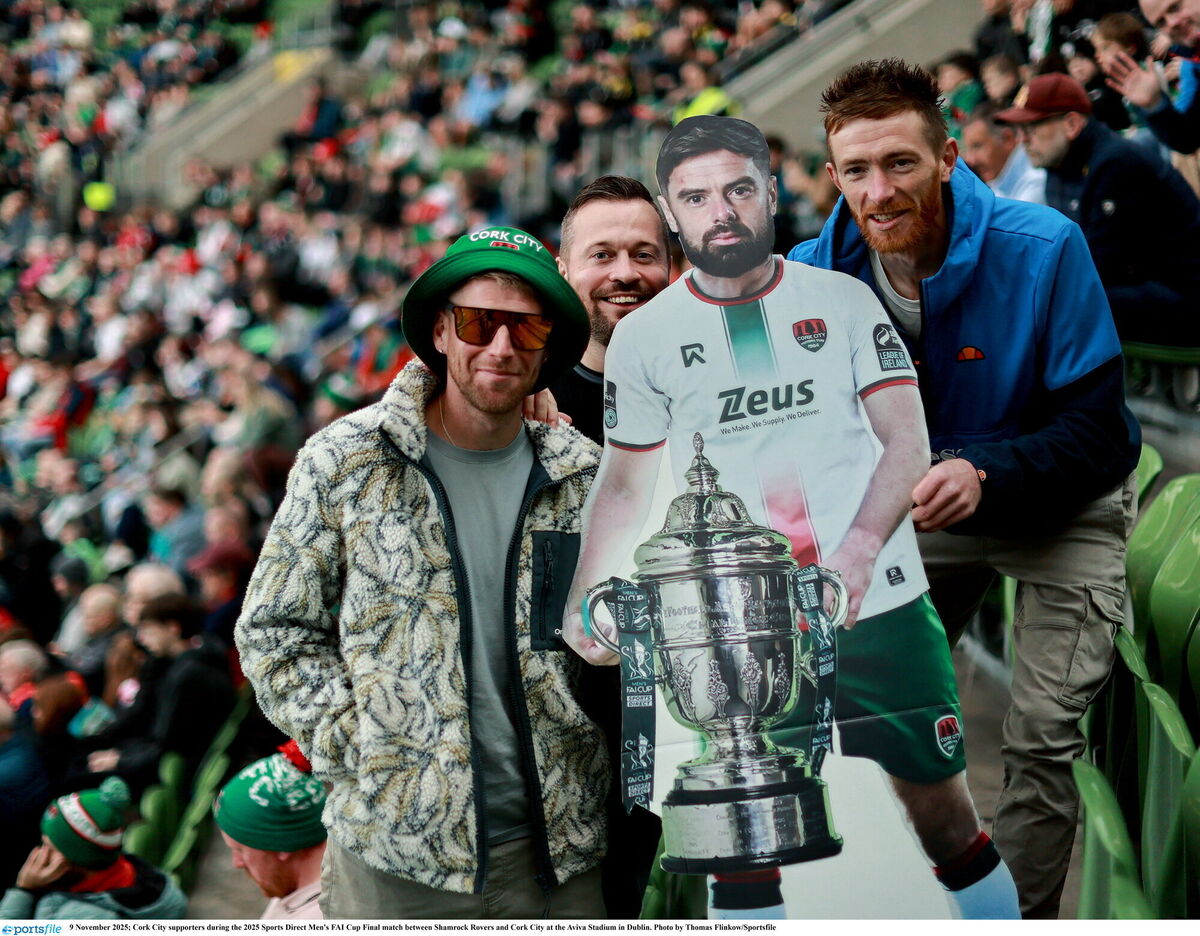
Greg Bolger spent a huge part of the first 30 minutes, pointing and instructing. That’s not to suggest he wasn’t making an impact, far from it. Ger Nash’s side were synchronised in their formation and movement, but ultimately couldn’t sustain it, as they had done in the semi-final win against St Pat’s.
City had half chances, Rovers had half chances. But for all that divides the top and bottom of the Premier Division table, it wasn’t glaring. It was only when Graham Burke took on Darragh Crowley outside the box and fizzed one at Brann in the 33rd minute, it started to tilt.
Matthew Healy had another effort outside the box three minutes later, but again, Rovers weren’t finding the clear cut chances they needed.
But then, the red card came, and belief alone could not carry legs and lungs another 45 minutes. Rovers, as champions do, kept their patience. Then they struck.
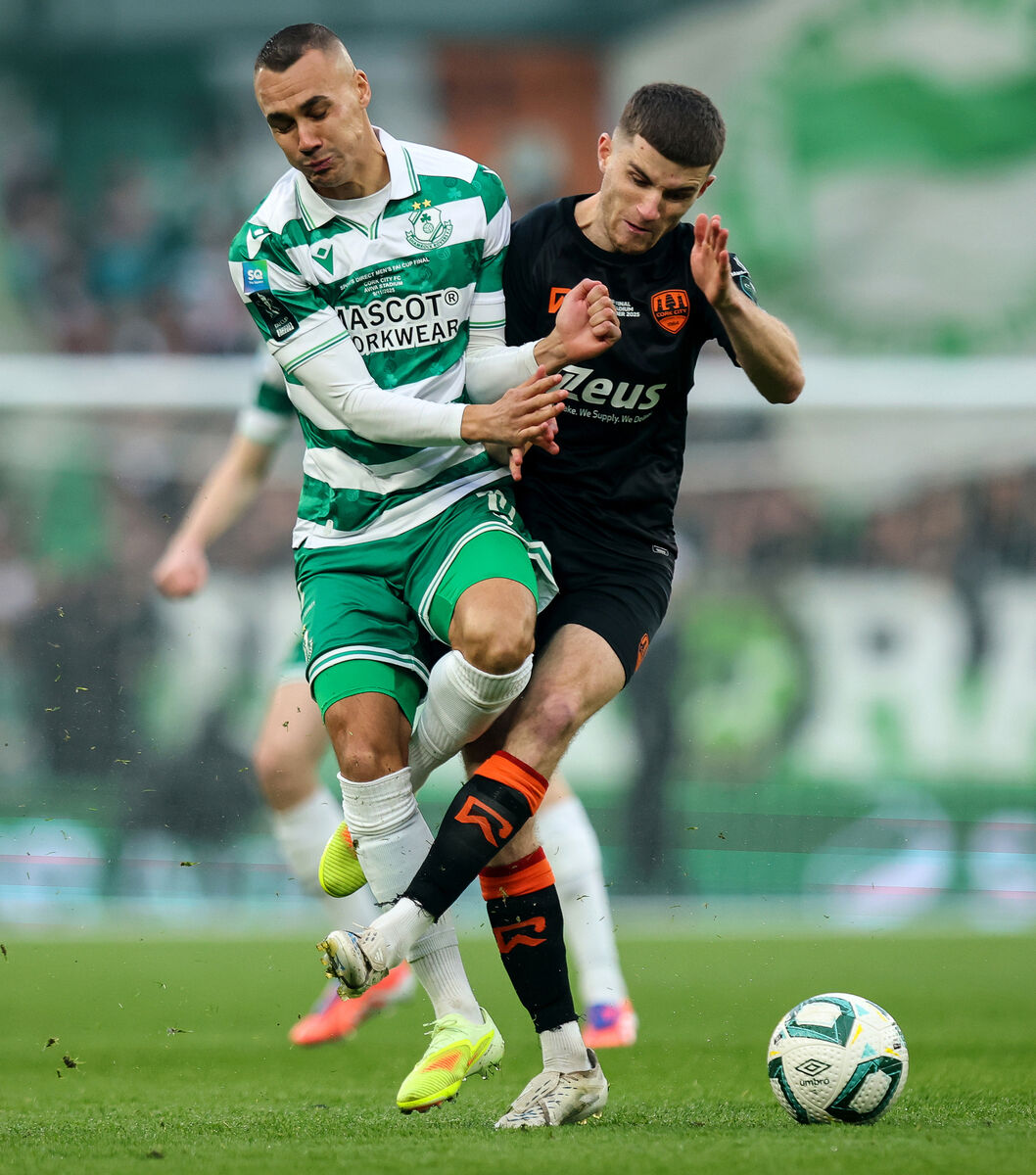
Gaffney’s first goal was efficient, inevitable even. And the second stamped out Cork City’s hopes only seven minutes after the first.
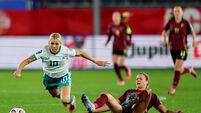
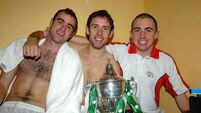

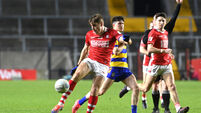
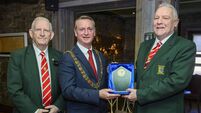
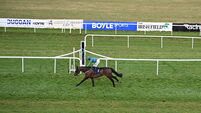



 App?
App?







